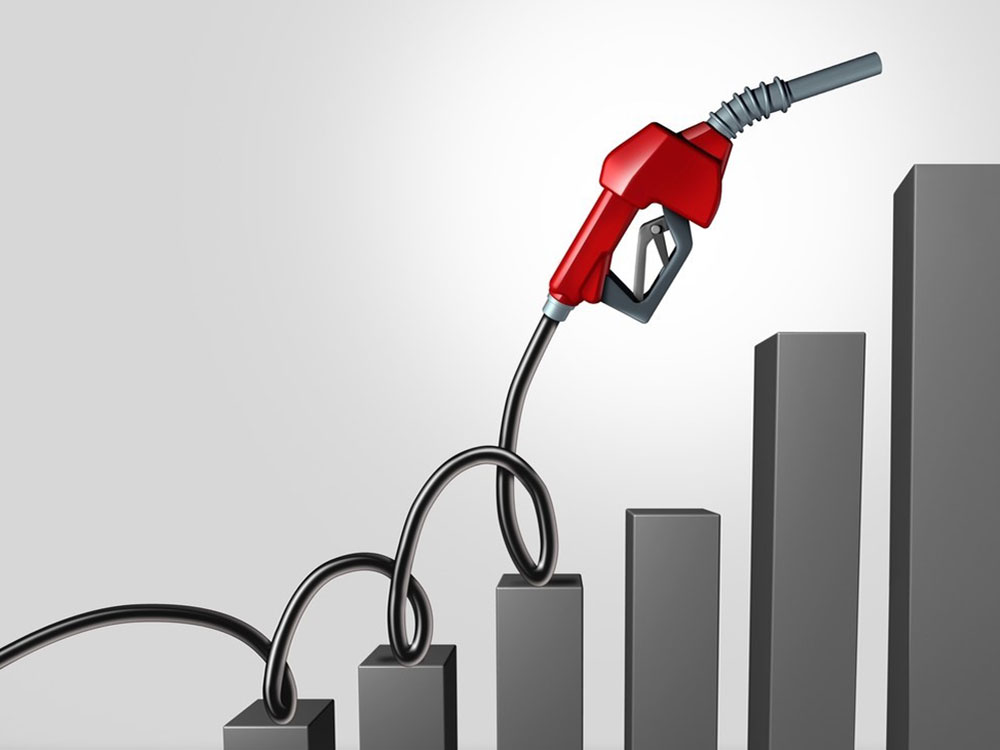Right now, three out of four Canadians are struggling to make ends meet. Housing prices are unattainable for many. Inflation is at levels not seen in decades. Gas prices have skyrocketed. Households are struggling to meet their basic needs and food banks are straining to meet surging demand.
While people across the country are facing impossible decisions (do they buy groceries or pay rent?) oil and gas companies have been raking in record-breaking profits — $8 billion in the first quarter of 2022 alone.
The roots of this financial crisis are complex, but one thing is crystal clear: corporations should not be profiting off the suffering and sacrifices of the public.
That’s why the BC Greens, the New Brunswick Greens and the PEI Greens are calling on Prime Minister Justin Trudeau to implement a windfall profits tax on the oil and gas sector.
The profits that oil and gas companies are reporting have skyrocketed since Russia invaded Ukraine, and they amount to war profiteering. A temporary tax on these profits would not increase prices for Canadians, but would instead redistribute the funds back to people in the form of rebates.
These companies are extracting and profiting from a resource that belongs to all Canadians — oil and gas reserves are a public resource. The role of government is to protect the public interest, and government has a responsibility to show corporations there is a limit to how much profit they can reap off Canadian resources at the expense of the Canadian public. It’s time for the federal government to act to ensure that Canadians aren't left to struggle while oil and gas companies benefit.
Economists consider it just and effective to tax unearned income, and a windfall profit tax would do more for the public than proposals to cut fuel taxes.
EU member states, the U.K. and the U.S. have pursued or are considering implementing windfall profit taxes.
In May, the U.K. implemented a 25-per-cent windfall tax on the profits of oil and gas. This tax will support $19 billion in assistance for low-income households.
In response to the call for a windfall profits tax on oil companies in the U.S., the American Petroleum Institute, the largest oil and gas lobby group, stated that raising taxes could limit investment in future production and that it is “exactly the opposite of what needs to happen.”
I argue that it’s exactly what we need — to transition away from fossil fuel development, investing instead in people and communities.
Fossil fuel extraction is still subsidized in B.C. (despite the scrapping of the deep well credit program) and in Canada: the federal government gave oil and gas companies $18 billion in subsidies in 2020 alone. Oil and gas companies are fuelling climate breakdown, poisoning drinking water and their operations are hazardous to human health. And, there is clear evidence that fossil fuel development contributes to violence against Indigenous women and children.
With increasing unaffordability, global conflict and the worsening climate crisis, this is no time to double down on fossil fuel expansion. At times like these, we need leadership and courage to transition towards a sustainable economy.
Our call for a windfall profits tax on oil and gas companies is a federal policy measure and directed at the prime minister. But provincial governments play a key role in addressing issues of affordability and climate change.
While the B.C. government announced a one-time rebate to assist people with the high cost at the pumps, it amounts to an average of $110 per person — barely enough to cover a tank of gas — and 80 per cent of British Columbians have yet to receive it.
Meanwhile, renters have been waiting for their promised $400 rental rebates for years.
While helpful in these trying times, one-off rebates ultimately fail to address the systemic challenges we face, or the exploitation of the public at the hands of corporations. What we need instead is investment in public transportation and vibrant, walkable cities. We need to build public intercity transportation services. We need to ensure that all British Columbians have access to nourishing food and a safe place to live.
Next week Trudeau and all the premiers will be in Victoria. We need to amplify this message as costs continue to rise. We need our country’s leaders to realize that the health of the public is more important than the profits of oil and gas corporations.
The province needs to act now, and they could do so by pushing the federal government to implement a windfall profits tax. ![]()
Read more: Energy, Local Economy, Politics

















Tyee Commenting Guidelines
Comments that violate guidelines risk being deleted, and violations may result in a temporary or permanent user ban. Maintain the spirit of good conversation to stay in the discussion.
*Please note The Tyee is not a forum for spreading misinformation about COVID-19, denying its existence or minimizing its risk to public health.
Do:
Do not: